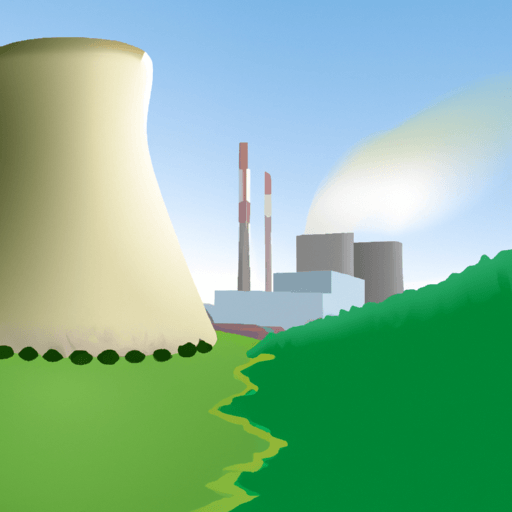Pros and Cons of Nuclear Energy as a Solution for Climate Change
The quest for a sustainable alternative to fossil fuels is more pertinent than ever as the impact of climate change becomes increasingly apparent. One possible solution is nuclear energy, which has the potential to supply significant energy with minimal carbon emissions. However, there are several points of contention that must be carefully considered when evaluating it as a solution for climate change. This article aims to provide a comprehensive view of the benefits, challenges, and implications of nuclear energy.
Nuclear Energy: The Basics
Nuclear energy is produced from the nuclear reactions of certain elements, typically uranium or plutonium, inside a reactor. The heat generated from these reactions is used to generate electricity. Despite the technical efficiency and enormous power potential of nuclear energy, it is only utilised for approximately 10% of the global power supply, according to the World Nuclear Association.
Advantages of Nuclear Energy
Low Carbon Power Source
According to the United Nations Intergovernmental Panel on Climate Change, nuclear power generates a fraction of the carbon dioxide emissions produced by coal and natural gas power plants. This makes nuclear power a leading option in the fight against climate change, since it offers the potential for large-scale, low-carbon electricity.
Efficient and Plentiful
Nuclear energy is highly efficient and energy-dense. A small quantity of uranium can produce enormous amounts of power, and unlike renewable energy sources, nuclear power can generate energy continuously, irrespective of weather or other environmental conditions.
Drawbacks of Nuclear Energy
Potential Disasters
The catastrophic incidents at Chernobyl and Fukushima highlight the potential for disaster with nuclear power plants. Breaches can lead to contamination and radiation sickness, posing serious health risks to nearby communities. Ensuring nuclear safety requires rigorous regulations and oversight.
Nuclear Waste
While nuclear energy produces minimal greenhouse gas emissions, it does create long-lasting radioactive waste. The storage and disposal of this waste is hugely problematic, posing risks to both the environment and human health. Furthermore, decommissioning nuclear power plants is costly and time-consuming.
Recent Developments
Developments in nuclear technology attempt to address some of these drawbacks. For instance, newer reactor designs aim to minimise the risk of accidents, while research continues into efficient and safer ways to deal with nuclear waste. However, these solutions are not without their own challenges and controversies.
In conclusion, nuclear energy offers the potential to mitigate climate change through the generation of large-scale, low-emission electricity. However, the risks and challenges it presents - including potential disasters, nuclear waste, and its associated health implications - mean that its use must be carefully regulated, and its adoption should be balanced with other sources of green energy.
With proper policies and procedures in place, nuclear energy can be a part of the solution to climate change. Yet, it is essential to continue research and development into safer and more efficient nuclear technologies, alongside efforts in other renewable and clean energy sources.



















Comments
Leave a Comment